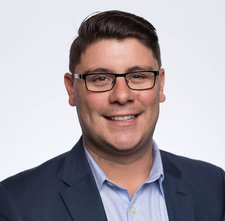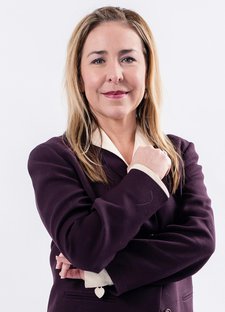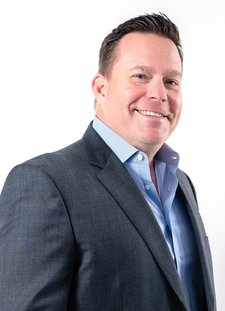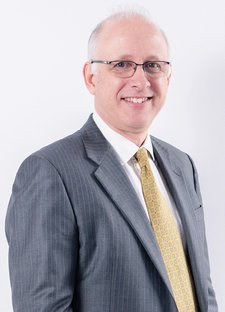
Kathleen Pender
April 22, 2020
Apr. 22--Claudia Widner of Castro Valley signed up to have $2,500 withheld from her paycheck before taxes this year and put into a flexible spending account to pay for her husband's dental implant. But just before his scheduled appointment in late March, the oral surgeon's office canceled because it's no longer doing implants as a result of the coronavirus.
"This is not considered essential, so I don't know when it'll be done -- perhaps not this year," Widner said. If it can't be done before year's end -- and who knows how hard it will be to get a medical or dental appointment once the Bay Area reopens? -- she could lose up to $2,000 because of the "use it or lose it" rule governing these tax-favored arrangements.

Many workers with these accounts, known as FSAs, are facing the same problem because doctors, dentists and hospitals are postponing non-emergency office visits, surgeries and other procedures to leave room for coronavirus patients, preserve protective gear and comply with shelter-in-place orders.
Just over 40% of civilian workers have access to these accounts, according to the U.S. Bureau of Labor Statistics, although they're much more common in large-company and public-sector jobs.
These voluntary plans let employees direct pretax money from each paycheck into one account to pay for health care and another to pay for dependent care. The limit this year is $2,750 for health care and $5,000 for dependent care.
Employees must decide before the year starts how much they want to set aside in each account. Once the year starts, they can't change the amount, unless the employer allows midyear changes, and even then, it can be for only certain reasons such as a change in marital status, employment or number of dependents. Not being able to see a health care provider during a pandemic is not an allowable reason under Internal Revenue Service rules.
When employees incur qualified health or child care expenses, they get reimbursed from the account. The upside is that money going into the account is tax-free. The downside is that if they spend less than they set aside, they forfeit any money left in the account at year end, with two possible exceptions.
For health care accounts, employers can let employees carry over up to $500 from one year to the next. Alternatively, they can give employees a 2 1/2 -month "grace period" after year's end to spend remaining funds. Employers don't have to offer either option, and they can't offer both. For dependent care accounts, they can allow a grace period but not a $500 carryover.
Another downside: If employees quit or lose a job with money remaining in the account, they lose it. One exception: They may be able to use leftover health care dollars if they maintain group health care coverage, at their own expense, under the law known as Cobra.
Widner's plan lets her carry over $500.
"If we can't have the implant done, and we don't get sick, we'll be out $2,000," she said.
"Employer groups already have asked the IRS to provide relief on the 'use it or lose it' rules for health FSA plans this year," said Liz Masson, an employee benefits lawyer with the law firm Hanson Bridgett.
The American Benefits Council, in a letter to the IRS and the U.S. Treasury Department, urged them to let employers temporarily offer a number of options. These include letting employees carry over more than $500 -- perhaps up to their entire balance -- into next year, extending the grace period from 2 1/2 months to six months, and letting employers offer both options. Other possibilities are letting employees increase, decrease or stop health FSA contributions midyear and letting terminated employees cash out their balances.
The use-it-or-lose-it rules also apply to dependent care plans, but IRS rules and most employers already allow midyear changes if a family's child care costs change significantly. Having your child no longer in day care is an acceptable reason to reduce contributions for the rest of the year, Masson said.
Even so, some parents may have already set aside more than they've used this year, "and some are hesitant to reduce contributions due to uncertainty about the rest of the year," the council said in its letter. So it's also urging the IRS to let employers extend the grace period for up to six months and allow parents who lose a job "during the public health emergency to cash out their dependent care FSA balances." It's also asking the IRS to allow parents to carry over balances into next year.
Katy Johnson, the council's senior counsel for health policy, said she believes the IRS has authority to change these rules. If it does, employers could adopt the changes, but wouldn't have to.
Congress also could take action. The Society for Human Resource Management, another employer group, sent a letter to House and Senate leaders asking for, among other things, "maximum flexibility for FSAs as health care providers are limiting access to routine treatments and childcare services have been suspended, leaving FSA funds unused. Therefore, a temporary extension of the grace period for eligible expenses and an increase in the FSA rollover amount are warranted."
With all the trillions of dollars going toward coronavirus relief, this seems like a relatively simple way to save workers a few bucks and put their minds at ease. Smaller things have made their way into recent legislation. The $2.2 trillion Cares Act lets women use FSA money to buy "menstrual care products" like tampons and pads.
Kathleen Pender is a San Francisco Chronicle columnist. Email: kpender@sfchronicle.com Twitter: @kathpender ___
(c)2020 the San Francisco Chronicle
Visit the San Francisco Chronicle at www.sfchronicle.com
Distributed by Tribune Content Agency, LLC.
This article is written by Kathleen Pender from San Francisco Chronicle and was legally licensed by AdvisorStream via the Tribune Content Agency through the NewsCred publisher network.







